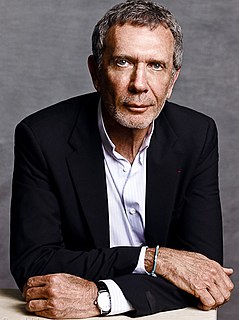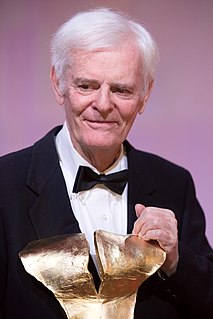A Quote by Pierre-Auguste Renoir
And if out of a million visitors there is even one to whom art means something, that is enough to justify museums.
Related Quotes
Life is nothing in itself. It’s a place marker that proves who’s winning, and we are the winners. We are always the winners. There is nothing but the winning. Even winning means nothing. We win because it’s an insult to lose. The ends don’t justify the means. The means don’t justify the ends. There is no one to justify to. There is no justice.” ~ Durzo Blint
I personally have never trusted museums. ... It is because museums, broadly speaking, live off of the art and artifacts of others, often art and artifacts that have been obtained by dubious means. But they also manipulate whatever it is they present to the public; hence, until Judy Chicago, in the 1970s ... few women artists were hung in any major museum. Indian artists? Artifacts only, please. Black artists? Something musical, maybe? And so forth.
Zalasiewicz is convinced that even a moderately competent stratigrapher will, at the distance of a hundred million years or so, be able to tell that something extraordinary happened at the moment in time that counts for us as today. This is the case even though a hundred million years from now, all that we consider to be the great works of man—the sculptures and the libraries, the monuments and the museums, the cities and the factories—will be compressed into a layer of sediment not much thicker than a cigarette paper.
When we even use the term 'specialized world,' we already have a problem! We're making art; they are making art... these worlds are not far apart from each other. For instance, pieces of art that hang on a wall can be seen in museums or can be used in a variety of commercial ways. That art is everywhere, so the message is that it's a part of everyday life.
We are so anxious to achieve some particular end that we never pay attention to the psycho-physical means whereby that end is to be gained. So far as we are concerned, any old means is good enough. But the nature of the universe is such that ends can never justify the means. On the contrary, the means always determine the end.








































